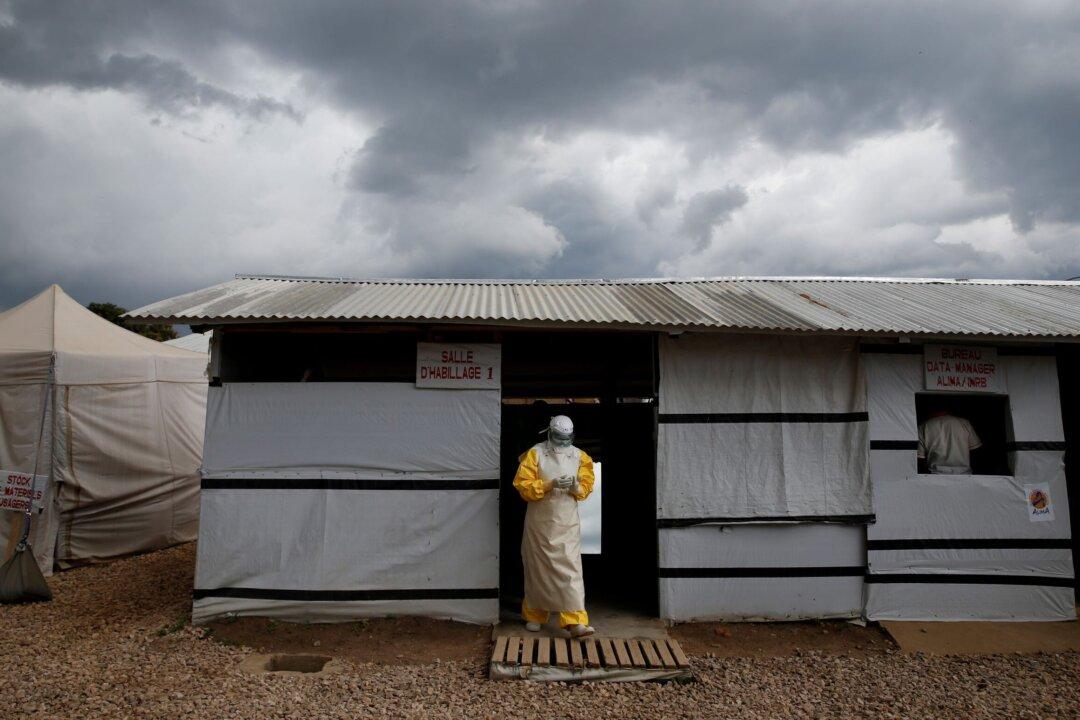NAIROBI, Kenya—A second Ebola patient has died in northwestern Democratic Republic of Congo, the World Health Organization (WHO) said on Tuesday, days into a fresh outbreak of the deadly disease.
Genetic testing showed an infection confirmed last week in the city of Mbandaka was a new “spillover event”, a transmission from an infected animal, and not linked to any previous outbreaks, said the country’s National Institute of Biomedical Research.





